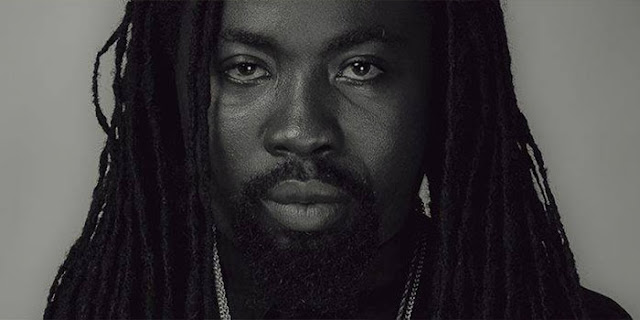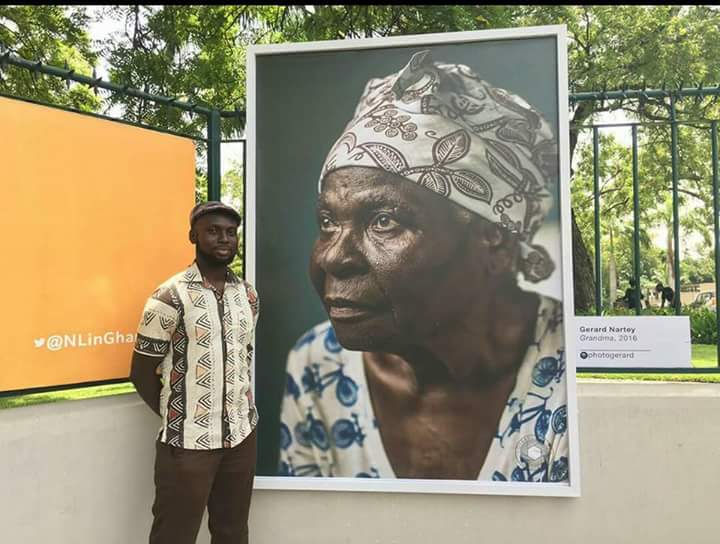Pae Mu Ka; The Urban Legend
Pae Mu Ka at 20 was a night to celebrate history; one of the origin stories of Hip Life in Ghana.
The maiden album of Obrafou (Rap Sorfour) released in 1999 has
this week been trending on social media and crabbing headlines as it marked 20
years.
In 1999, when the likes of Jay Z, Nas and others were ‘repping’
Hip-hop in their prime, a young industry was being born out of their influence
and the global export of rap. An urban phenomenon elsewhere had a taste of
the local culture, music, language and heritage of Ghana, a blend which stated
the rap version of high-life we now know as Hip-Life.
Pae Mu ka 20 gives the chance to appreciate the history of Hip-Life
in Ghana and to understand the contribution of legendary Obrafor.
“Twenty years down the line since Pae Mu Ka was released. I saw
it all; it’s an amazing story”, borrowing the words of the accredited founder of
Hip-Life, Reggie Rockstone.
Most def @manifestive came through on the day for @iamobrafour at the launch of #PaeMukaAt20 which was birthed by @yvonnenelsongh the whole atmosphere was surreal with lots of love ❤ pic.twitter.com/v9MX1ie6cu— Edmund Laryea (@SeeDeblay) May 31, 2019
This music was not accepted in its day. It was seen as a worldly
music in a then conservative society when a spaghetti straps was seen as the
most sexual dress one could imagine. Hip-Life was sometimes barred from airing
on the only radio station GBC.
Payola was a result of that crackdown where artist had to pay
for airplay.
This irony played out in the personality of Obrafor, a young
conservative Christian coming in contact with rap. Obrafour was a young SDA
Church boy who fell in love with what Reggie Rockstone imported into Ghana, rap
music. Then it was a performance of spoken word spiced with African poetic
rhyme & alliteration, African language and a general Ghanaian-ness on a
high-life chorus which would be called Hip-life.
Industry players concur that Pae mu ka album was an experiment.
It was the first time the likes of Da’Hammer of the Last Two fame ventured into
music production.
According to Da’Hammer, “It was our first time doing this, all
the four member team on this project and Obrafour himself had no professional
experience, we were all new to this but it was a risk we took happily.”
A project he never took a dime for: “I didn’t get a cedi out of
it; we wanted to make a statement with this project and we are glad we did,” he
added. He was giving a tribute to the 20th anniversary of the album
debut on 3FM Drive with Giovani Caleb on 3FM 92.7 mhz.
When Obrafour released Pae Mu Ka on a cassette tape, the new
Hip-life frenzy caught fire, becoming the hippie thing for the cool kids. A
story is told of an investor who offered to buy the incomplete album.
According to celebrated DJ and radio personality, DJ Black, “It
was quite a news when Obrafour came out with an album. It was a real changer in
the industry.”
His music was thought provoking and his lyrics carried
inspiration, advice and accepted cultural norms of the day. His Christian background
had a heavy influence of the lyrics of the music; it still does in his most
recent songs.
Many believed that Obrafour was the originator of Hip-Life, they
can’t be faulted too much. For Obrafour’s style and delivery pioneer the genre
and the popular culture that will arise from it.
“Obrafour has always been
in my corner” Reggie Rockstone reveal in an interview with 3Fm Drive with
Giovani Caleb.
“I’ll always say this, at a point I was so popular but broke.
Obrafour would drive all the way to my home to lend a helping hand.” He added.
“Obrafour is a living legend!” Reggie Rockstone said.
A legend indeed. The legend recognizing the effort of another
legend.
Sakordie, Manifest, Pappie Kojo, and
the whole music heavy weight of Ghana graced the anniversary to throw support
behind the icon Obrafour.
I grew up listening to Pae Mu Ka actually know knowing what most of the words meant. I was just following the childhood gratification I got from the sound of the beat, the rhythm of the lyrics and at time the chorus. Some songs spoke to me directly while some sounded like advice I could offer my colleges if i want to tease them with a life lesson after they had suffered some misfortune. It was a culture I never questioned, just enjoyed.
I remembered when we used our chest and hands to reproduce the beats while we sung along; (Hit the chest twice, and clap, hit the chest one and clap and repeat) "yaa nom yaa nom, mun tie, muntie. Brafour, brafour, me nie me nie"
Godfather @iamobrafour X The Highest @sarkodie #Paemukaat20 #PaeMuKa #ALPHA pic.twitter.com/Smy9CEzGuY— The broom seller's son (@original_Jamot) May 31, 2019
I grew up listening to Pae Mu Ka actually know knowing what most of the words meant. I was just following the childhood gratification I got from the sound of the beat, the rhythm of the lyrics and at time the chorus. Some songs spoke to me directly while some sounded like advice I could offer my colleges if i want to tease them with a life lesson after they had suffered some misfortune. It was a culture I never questioned, just enjoyed.
I remembered when we used our chest and hands to reproduce the beats while we sung along; (Hit the chest twice, and clap, hit the chest one and clap and repeat) "yaa nom yaa nom, mun tie, muntie. Brafour, brafour, me nie me nie"




Comments
Post a Comment